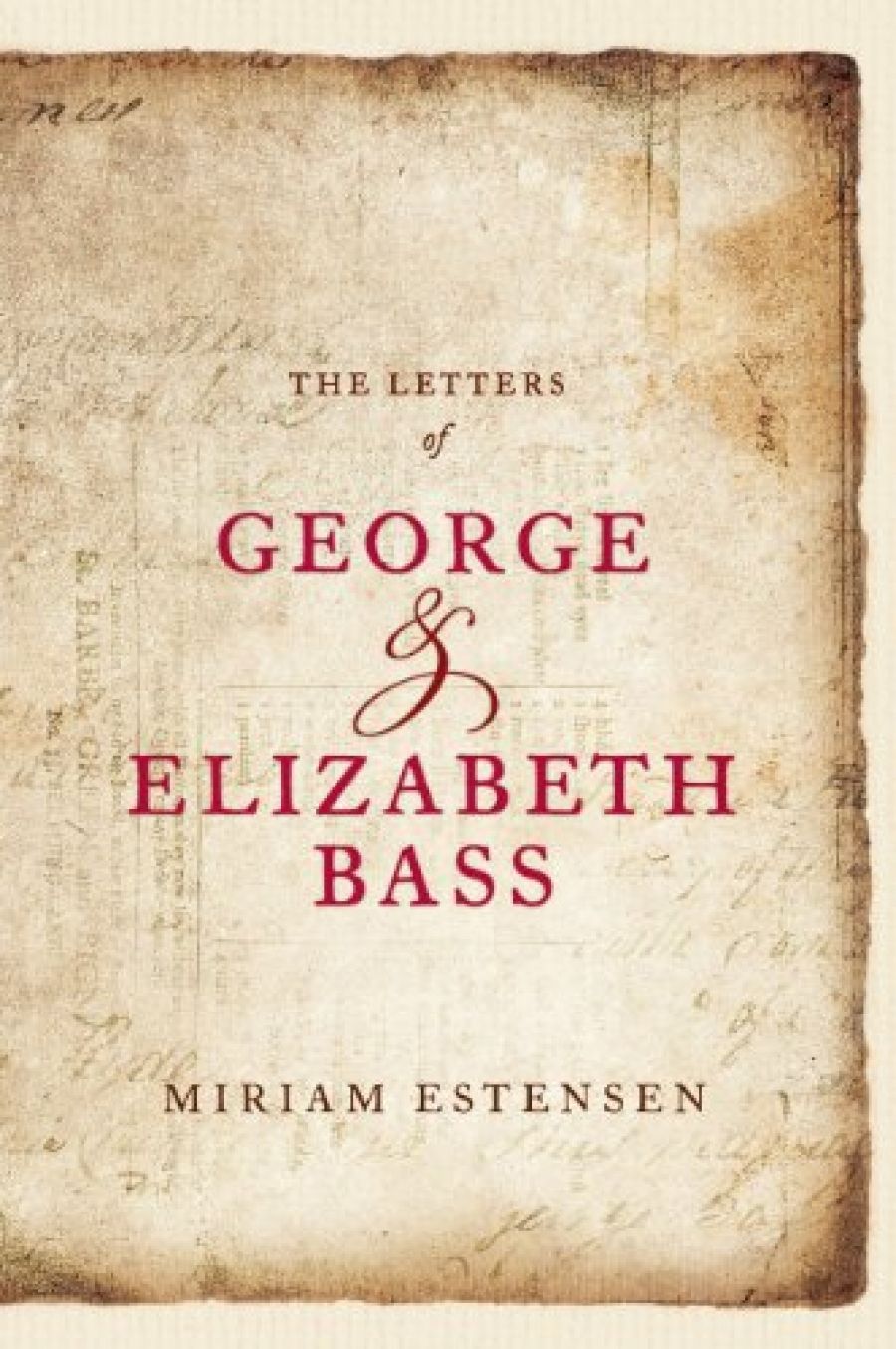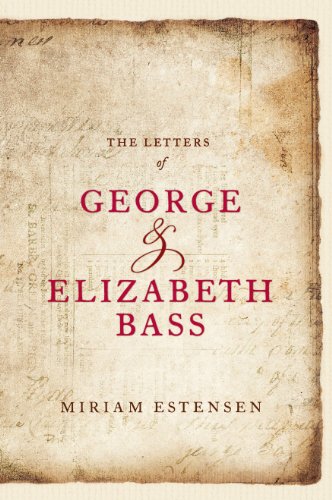
- Free Article: No
- Contents Category: Letter Collections
- Review Article: Yes
- Article Title: ‘Two minutes must suffice’
- Online Only: No
- Custom Highlight Text:
In the shadow of the famous romance of Ann and Matthew Flinders lies another, even sadder love story, between Flinders’s partner in exploration George Bass and his wife, Elizabeth. Bass and Flinders are so firmly bracketed in the Australian historical imagination that it comes as a surprise to find that the only references to Flinders in this collection of the Bass letters come from Elizabeth. Flinders does not even merit an entry in the biographical notes at the beginning of the book.
- Book 1 Title: The Letters of George & Elizabeth Bass
- Book 1 Biblio: Allen & Unwin, $45 hb, 216 pp
- Book 1 Cover Small (400 x 600):

- Book 1 Cover (800 x 1200):

Bass and Flinders both excused their absence from their wives by pleading stern economic necessity: once this first long separation had passed, they promised they would never be apart again. That George Bass did really long to be back with his ‘Bess Bass’ is clear from these letters. However, one could not imagine him sitting alone with his flute playing a little song he wrote for his wife as Flinders did when detained on Mauritius. Intelligent, impatient and unsentimental, George chivvies his wife, laughs at her for her atrocious spelling and even makes the occasional blue joke.
For her part, Elizabeth Bass is revealed in her letters as a woman of spirit. In George’s absence, she had to deal with his London agents in matters of his career and his pay. ‘Young Mr Sykes has behaved very kind to me each time I have gone. I never wish to see his Father again, as I consider him a compleate [sic] Bear,’ she reported in December 1801. In her early letters, she is obviously extremely anxious and worried for George’s safety. Some charts which had arrived too late for him to take with him on his journey preyed on her mind:
The Day after you left me I received a parcel of Charts from Mr Delrumple [Alexander Dalrymple] you so much wished for, and another the following Day. O I would have given Thousands if I had them to have got them conveyed to you as it constantly dwelt on my mind that having them might save your dear Life.
These charts recur in later letters, perhaps not just because they are a focus of Elizabeth’s anxiety but because there was such uncertainty about whether any one letter would arrive at its destination that anything important needed to be mentioned at every opportunity. In the second of her letters to survive, written in April 1801, she says, ‘this is either the 6 or 7 Letter I have written the first by the Nutwell either two or three by the Hindostane to the Cape one by the Venus to New South Wales one by C’t Flinders and this to China. perhaps you may never get any of them. I hope your mind is too employed to feel the want of them as I do.’ Elizabeth had the eternal malady of the sailor’s wife: too much time to worry. Although of the twenty-two surviving letters between them (all included in this book) only eight are from Elizabeth, they are, on the whole, much longer than George’s letters, which were often written in a hurry whenever an opportunity arose. In November 1802 he wrote, ‘Two minutes must suffice to tell thee I love thee; and that I am yet alive as thou mayest perhaps surmise by my writing to thee.’
Estensen is keen to point out that George’s ‘expectations of his wife’s very proper conduct were typical of the time’, but it is a little disconcerting to read, ‘Remember my Bess you have a husband who will not forsake you nor ever cease to love you as long as my Bess remains deserving of it.’ Just before he left on his final voyage in 1803, to disappear mysteriously into the Pacific, he wrote a confused and possibly drunken letter:
In all my walks, at every beautiful prospect in every pleasantly situated house – but hold Bess I am going to give thee proofs I love thee when I ought to give thee only words. In short Bess they all bring thee into my mind. Thou shalt one day or other admire them with me – that is if thou are good – old woman. – for I thou art bad thou mayest ’een stay in England, we have enough of that sort here. Again.
Thou shalt not breed. & fill my cabin full of squallers, there’s no room for such gentry.
Cruelly, this was the last direct word she seems to have had from her husband. She would never accept that he had died, and she lived for another twenty-one years.
Estensen’s editing is thorough and helpful, though there is no index (names and places would suffice). The book design is elegant and clear, once one gets accustomed to the odd arrangement: each entire left-hand page is left free for footnotes. There is a map and a few colour plates; sadly no picture of Elizabeth survives. The publication of the Letters makes a valuable companion volume to Estensen’s Life of George Bass (2005).


Comments powered by CComment